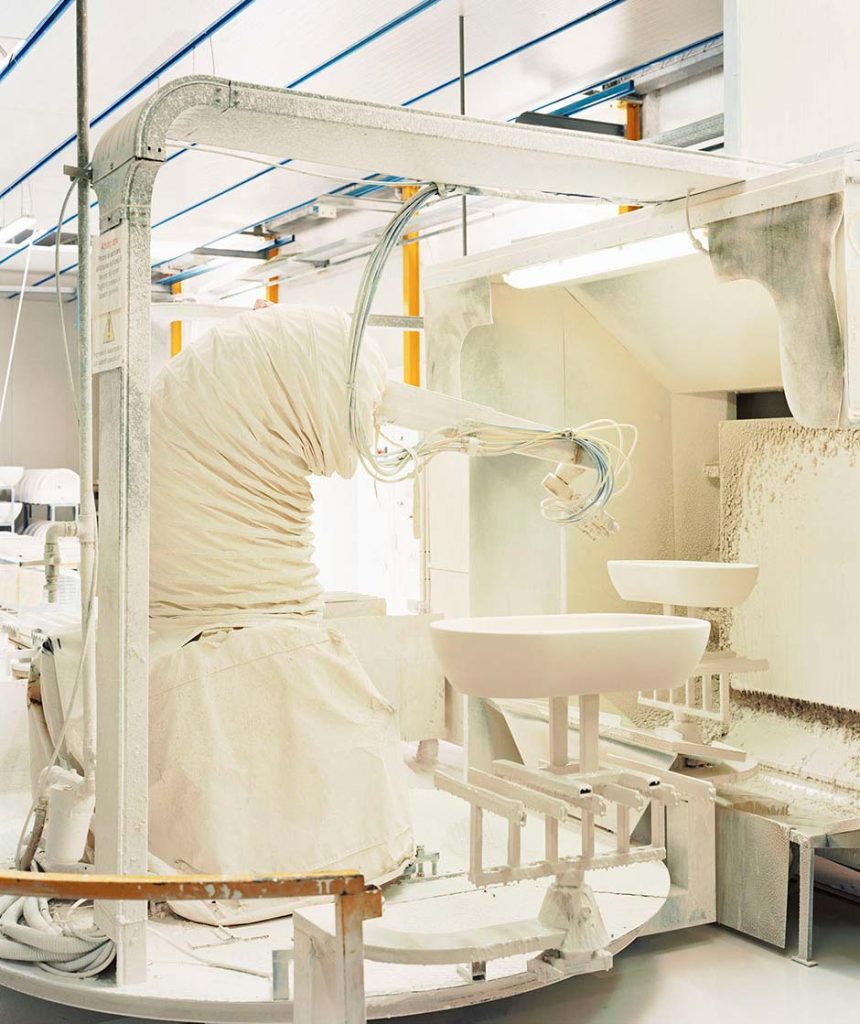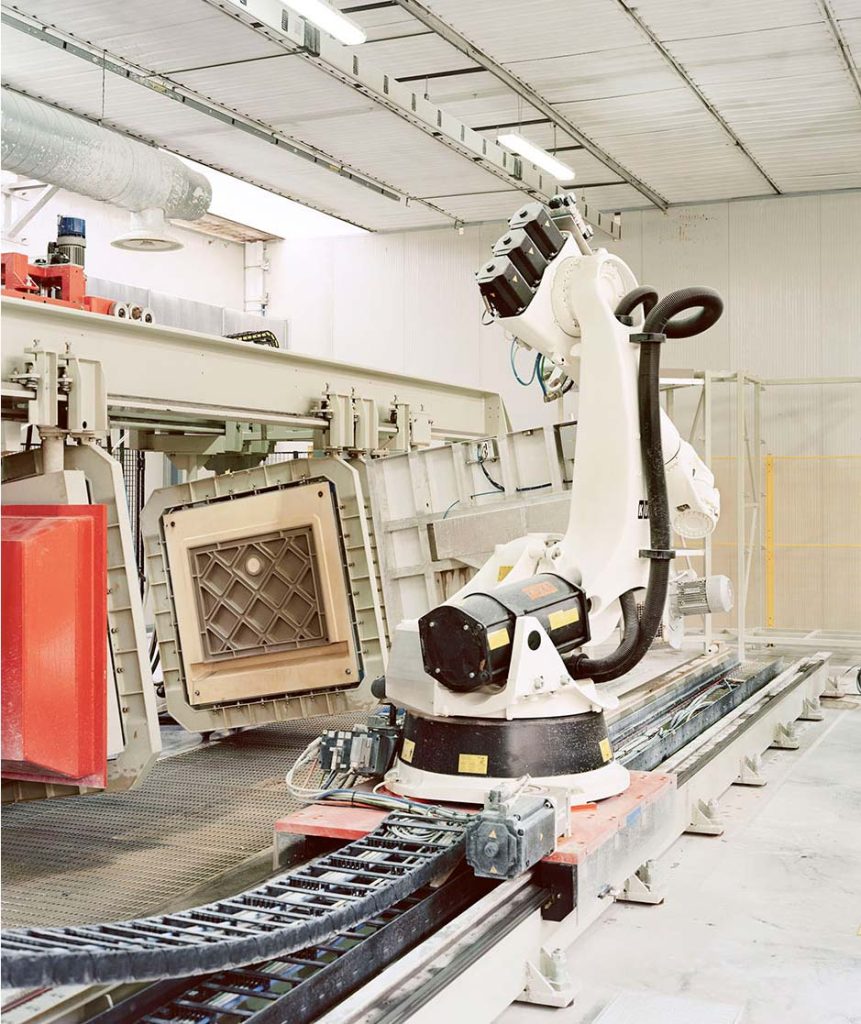GSI produces sanitary, washbasins, bidet, wc and dedicated accessories, through a productive process that applies the correct mix of technology and skill, just as required by the peculiarity of the product.
In this way the Company participates in an active and constant manner to the evolution of the division of the Italian ceramic sanitary, with designed products to last through time and to meet with the real diversified needs of use, in terms of design, functionality, comfort and quality.
Manual ability and automation, craftsmanship and technology.
GSI products are the result of a complex development process which harnesses the latest 3D system technology in every phase of design and prototyping. This is followed by a high pressure production method, automated enamelling and setting in a kiln running at 1250°C.
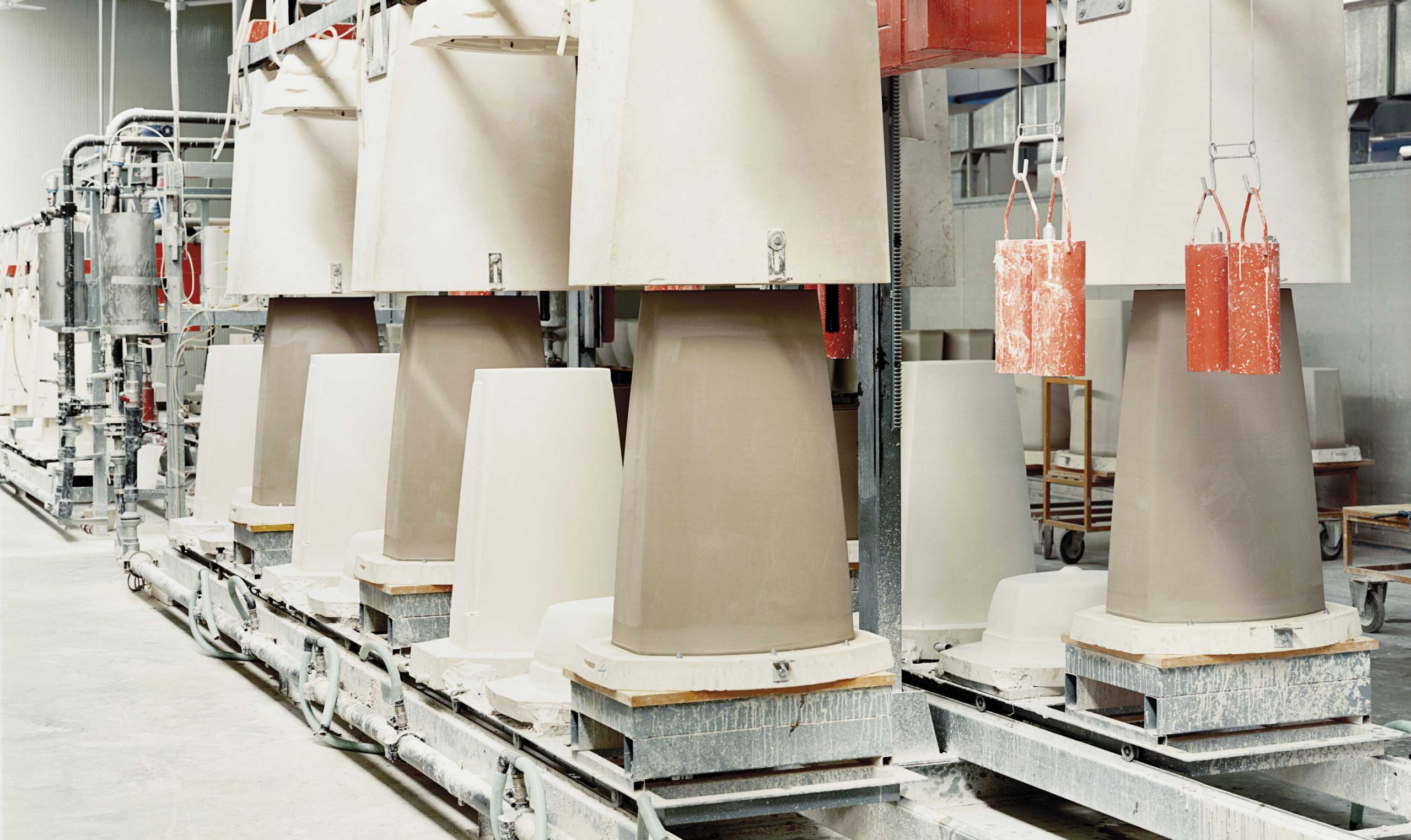
The entire process is supervised in detail by qualified staff who carry out constant quality checking. Each phase of production, and every item produced, is tested against a strict quality control system conforming to the latest European standards. Technical, functional and aesthetic requirements form a selected system of products which allow GSI ceramics to only offer its clientele products that are of high level quality endowed with the certified document CE.
Over the last few years, the company has invested in the latest generation production plants; high pressure casting systems which are the most innovative and efficient in the sector. This latest technology, allows a quality improvement and also grants a strict supervision throughout the entire production phase, considerably raising the qualitative standards of the finished product.
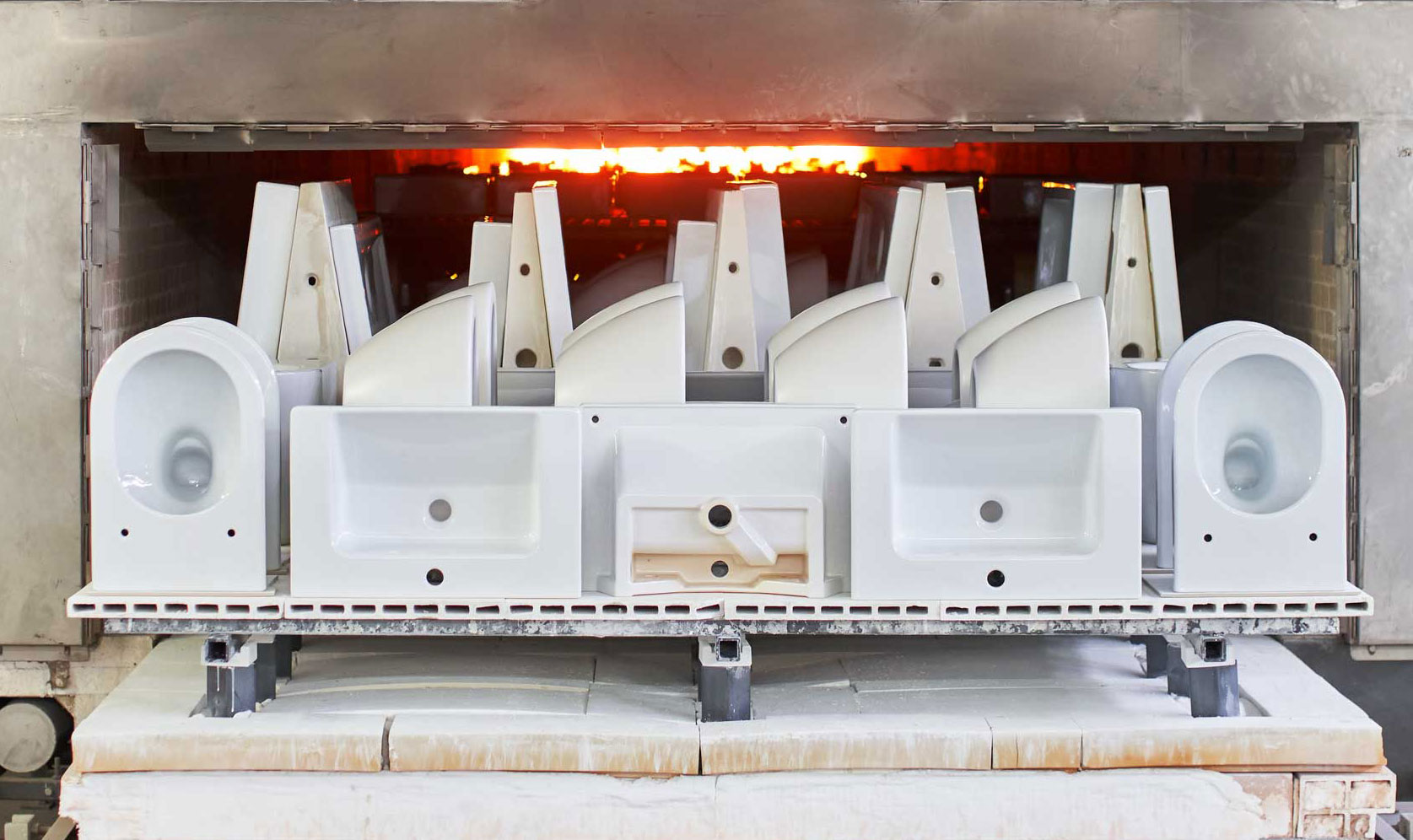
The continuous research of an own style aimed to an original design and however sober and elegant, together with the introduction of technology, allows a study of the forms and of the most efficient functionality in reduced time, everything without ever renouncing to the own tradition.
The attention, almost obsessive, for the details and the style, later guarantees a production of high aesthetical value, that identifies itself on the market for the great worth value of a Made in Italy absolutely excellent to invoice.
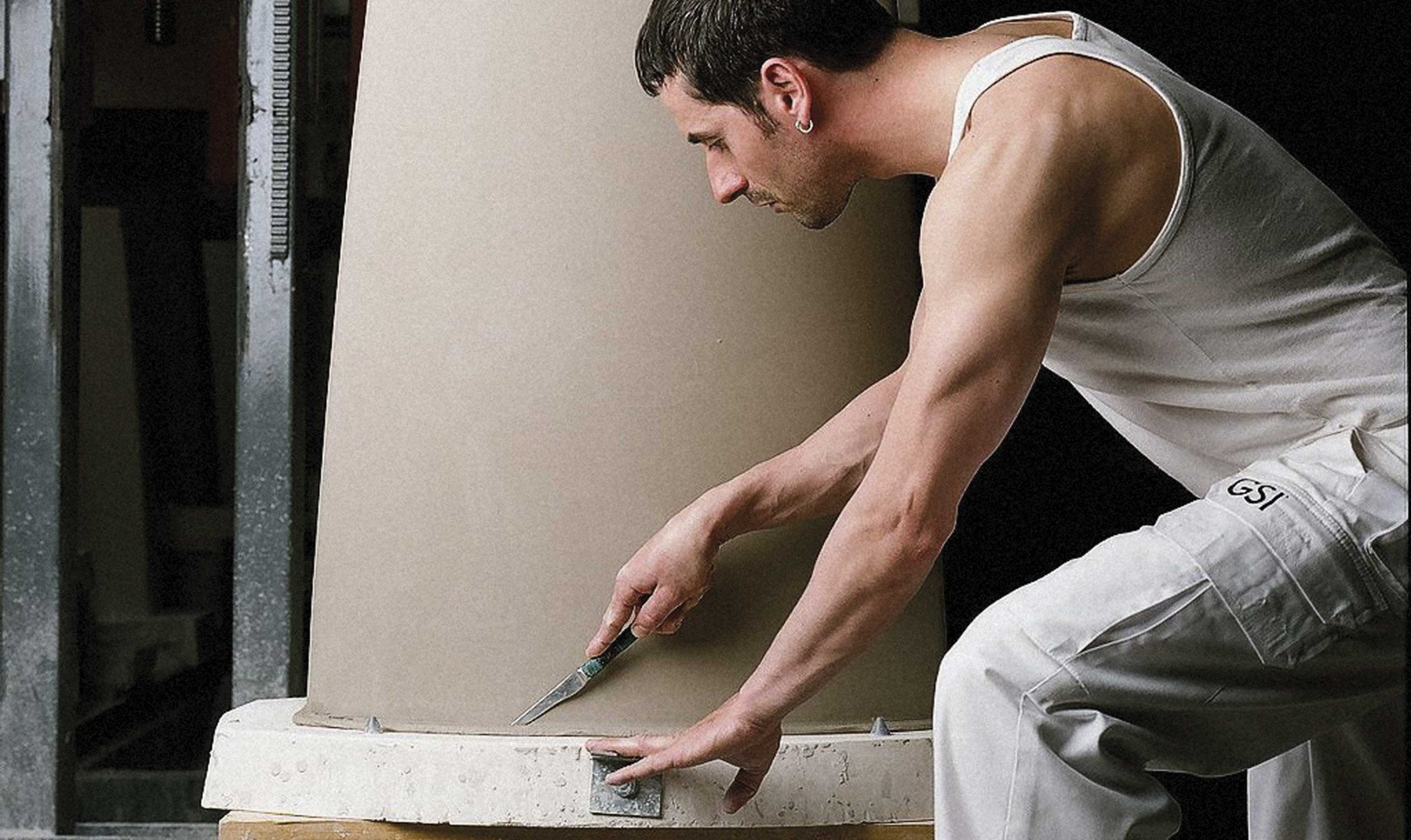
Ceramic process
1
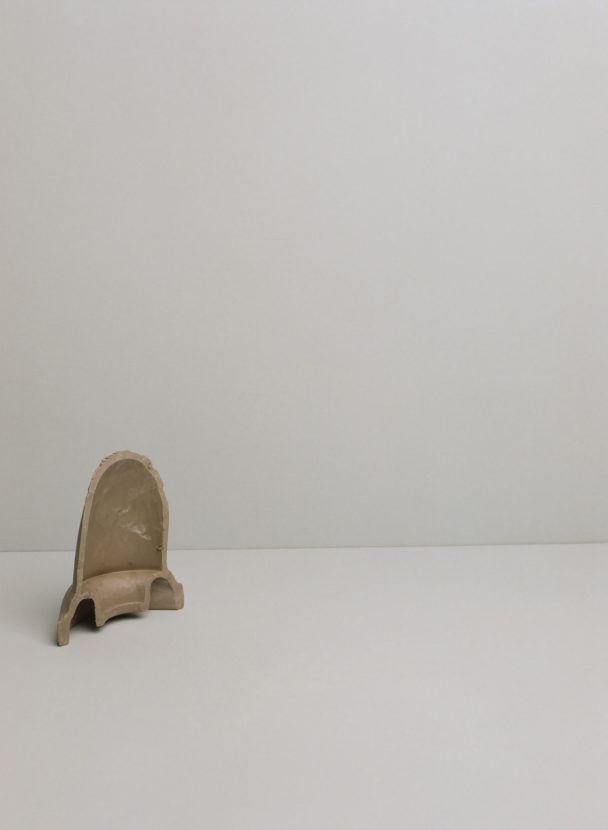
Design and modeling: the birth of the “mother mould” ready for casting, either through pressure or traditionally, to create our sanitary ware.
GSI possesses the most advanced production technology currently available in the field of ceramics. The high pressure casting plant allows us to produce higher quality sanitary pieces in shorter time, around one piece every ten minutes. The moulds in resin remain unaltered: the first piece obtained is identical to the last. And for the traditional casting GSI is also in step with the times: the automization of this phase of production has been a practice at the company for years.
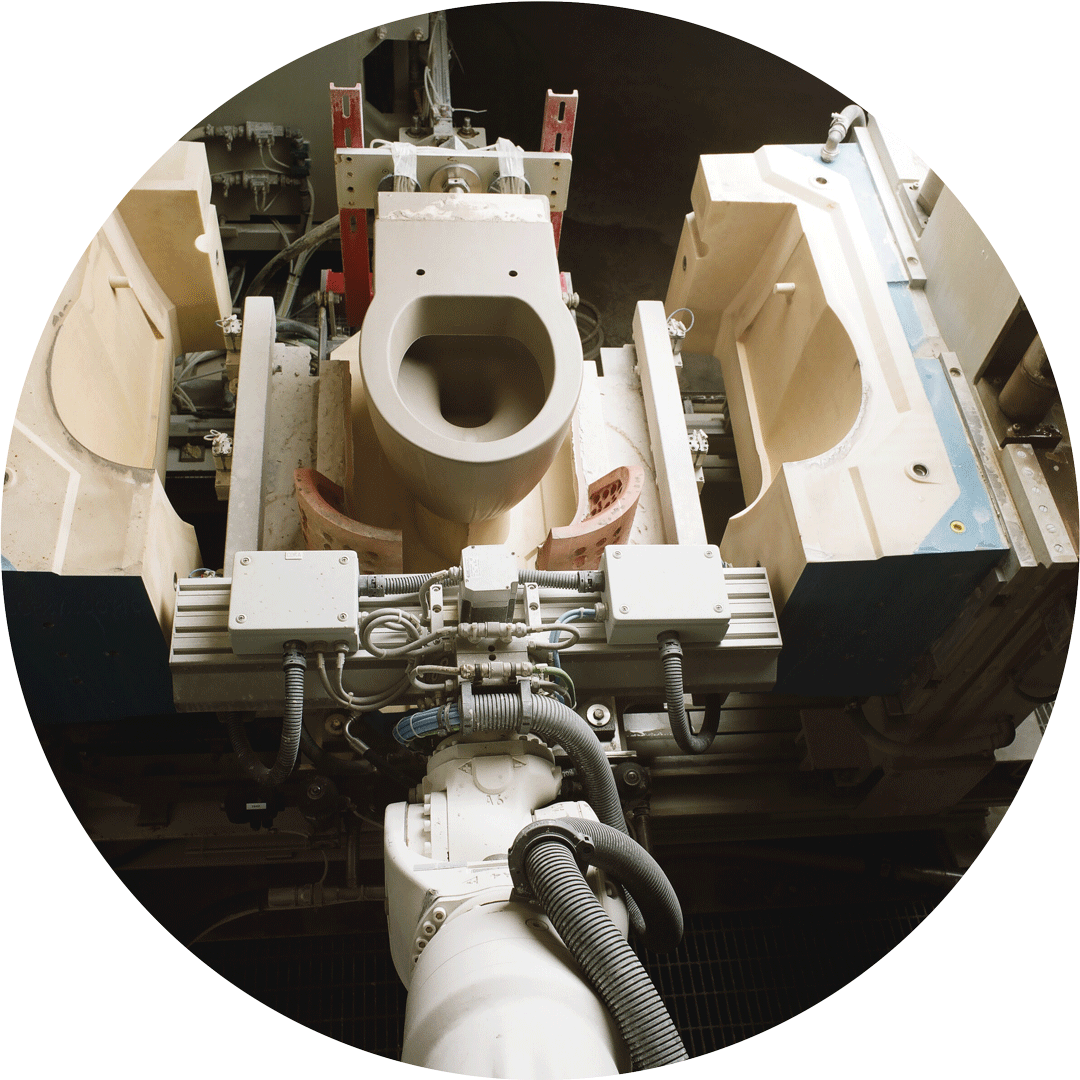
2
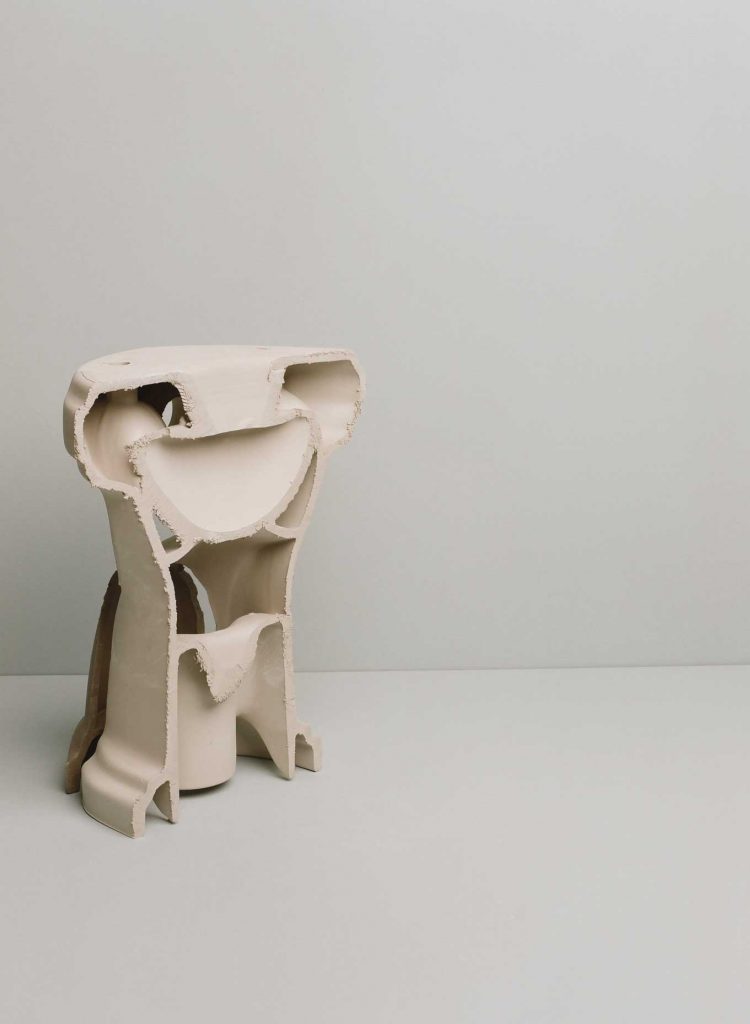
Drying and hand finishing for a smooth clean surface.
The work of refinishing which follows the pressing is performed manually: only our workers’ experience as craftsmen ensures that every section of the piece is flawlessly refinished.
In practical inspection booths that are equipped with special residue capture systems, the seams are planed down and the surfaces made smooth. After a meticulous cleaning that removes even the tiniest grains of dust, the piece is ready for glazing.
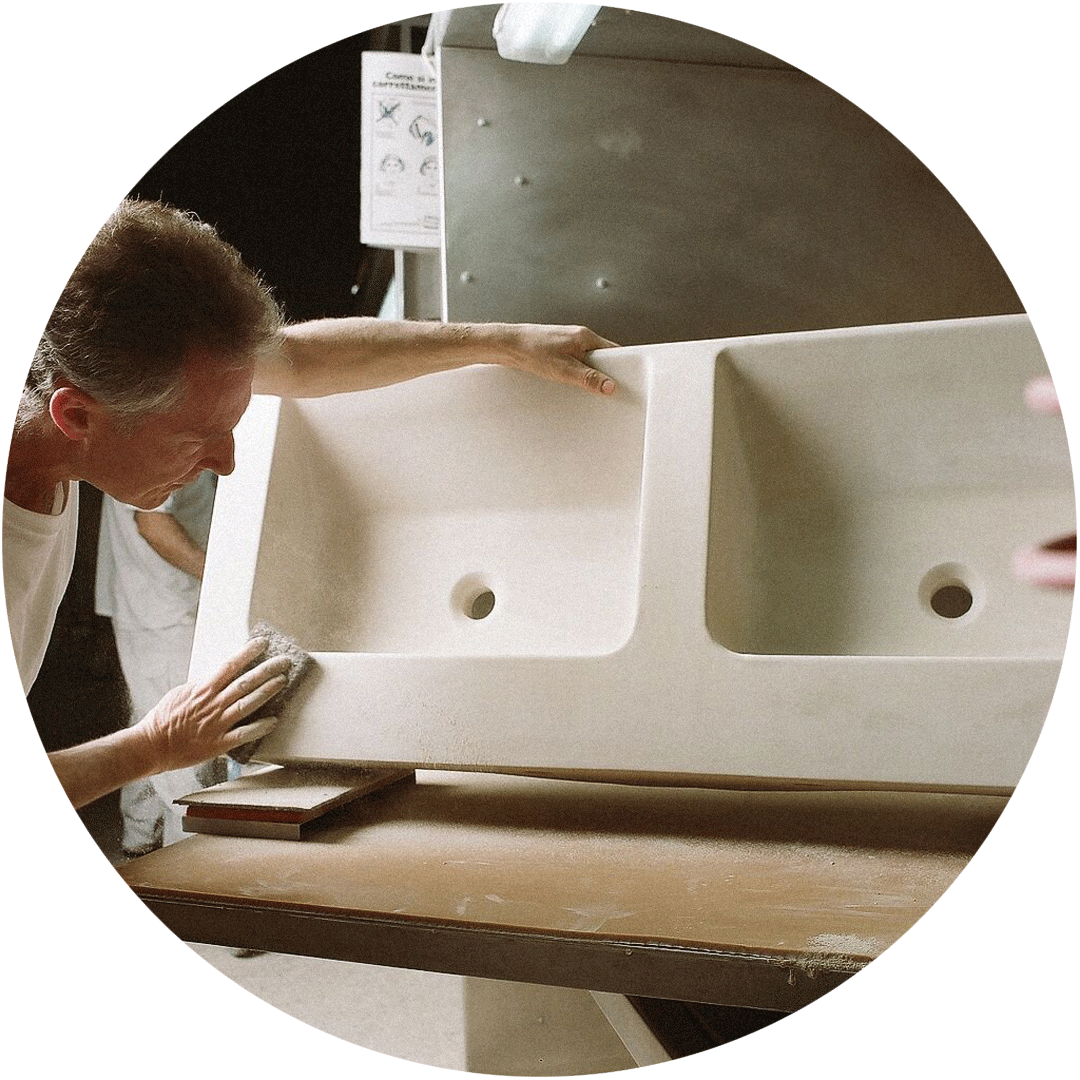
3
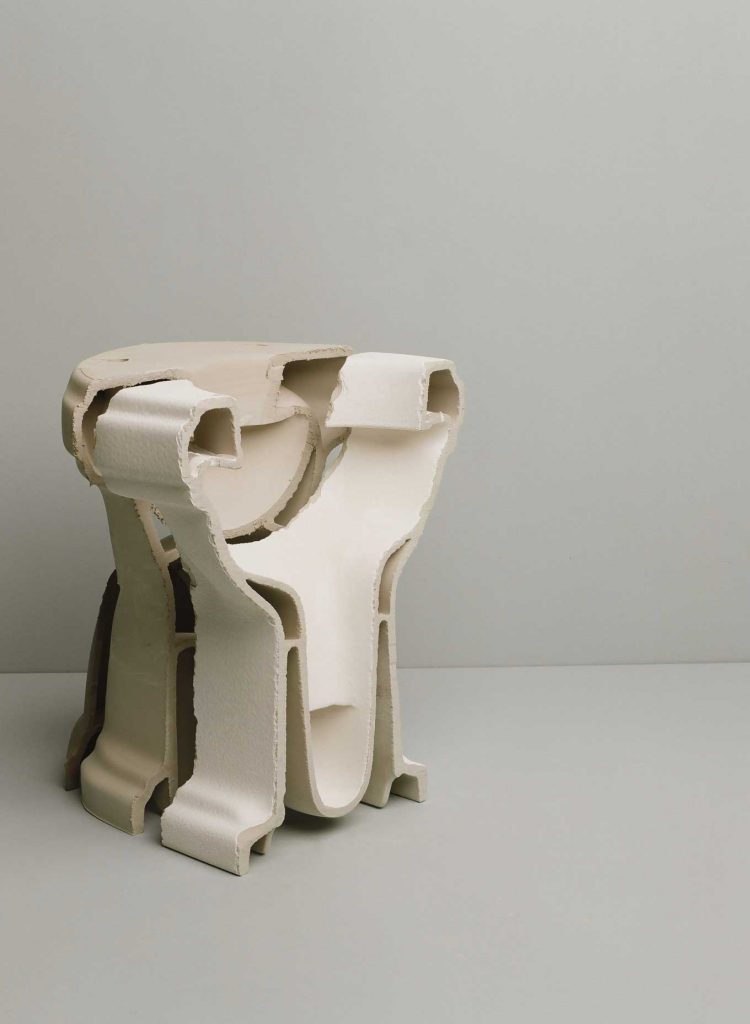
A homogeneous glazing, precise in every point to guarantee the highest hygienic standards and aesthetic excellence.
In the production cycle that ends up in the finished product GSI has innovated the glazing phase by adopting self-learning robots.
The operator carries out the spraying manually and the machine memorizes his movements and then constantly repeats them to the same high standards of artisanal craftsmanship. Programming by the department head makes it possible to adapt the speed of the glazing to other production phases.
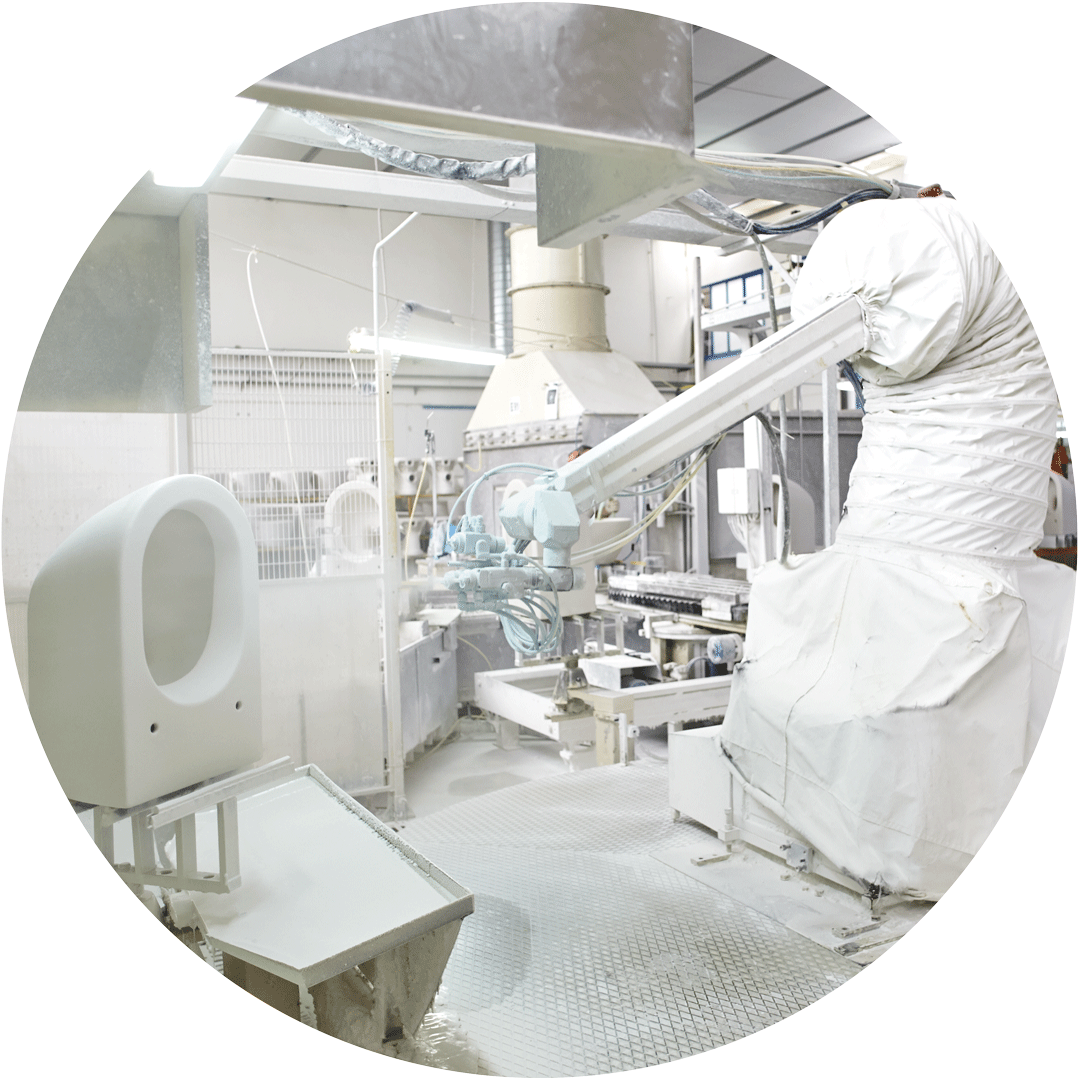
4
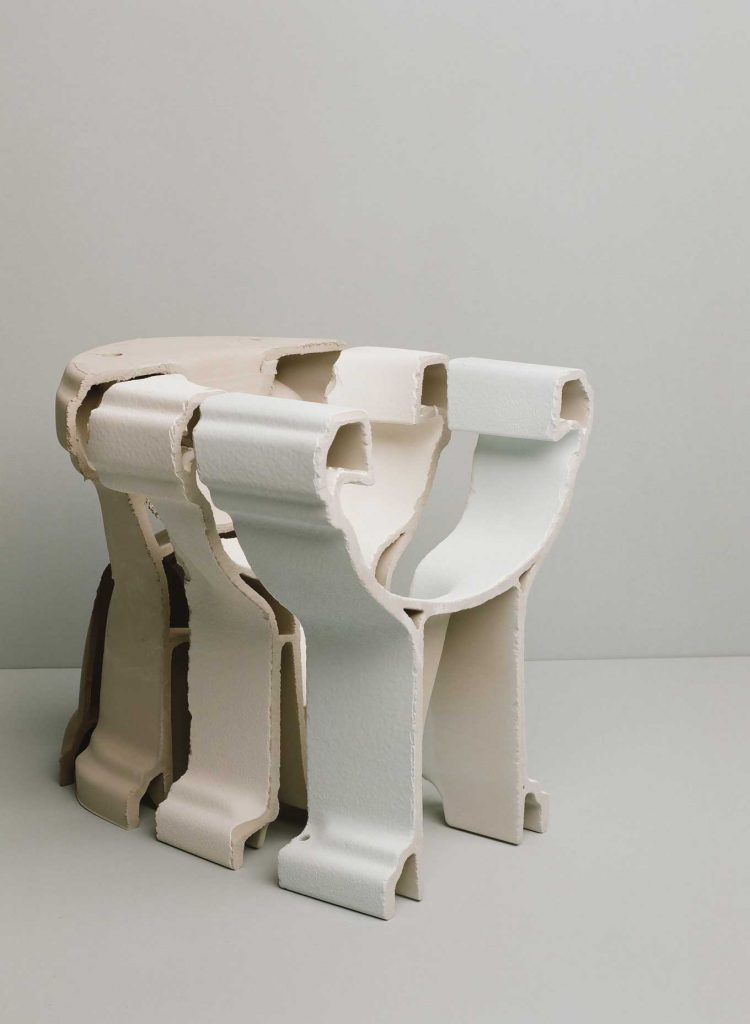
Extraglaze® antibacterial for durability and sheen that will stand the test of time.
Automation of the movement of the pieces makes for an orderly transition from one phase to another while constantly ensuring the object’s safety.
Once the initial glazing is over, the piece goes on to the second glazing. After around 15 minutes it is ready for baking.
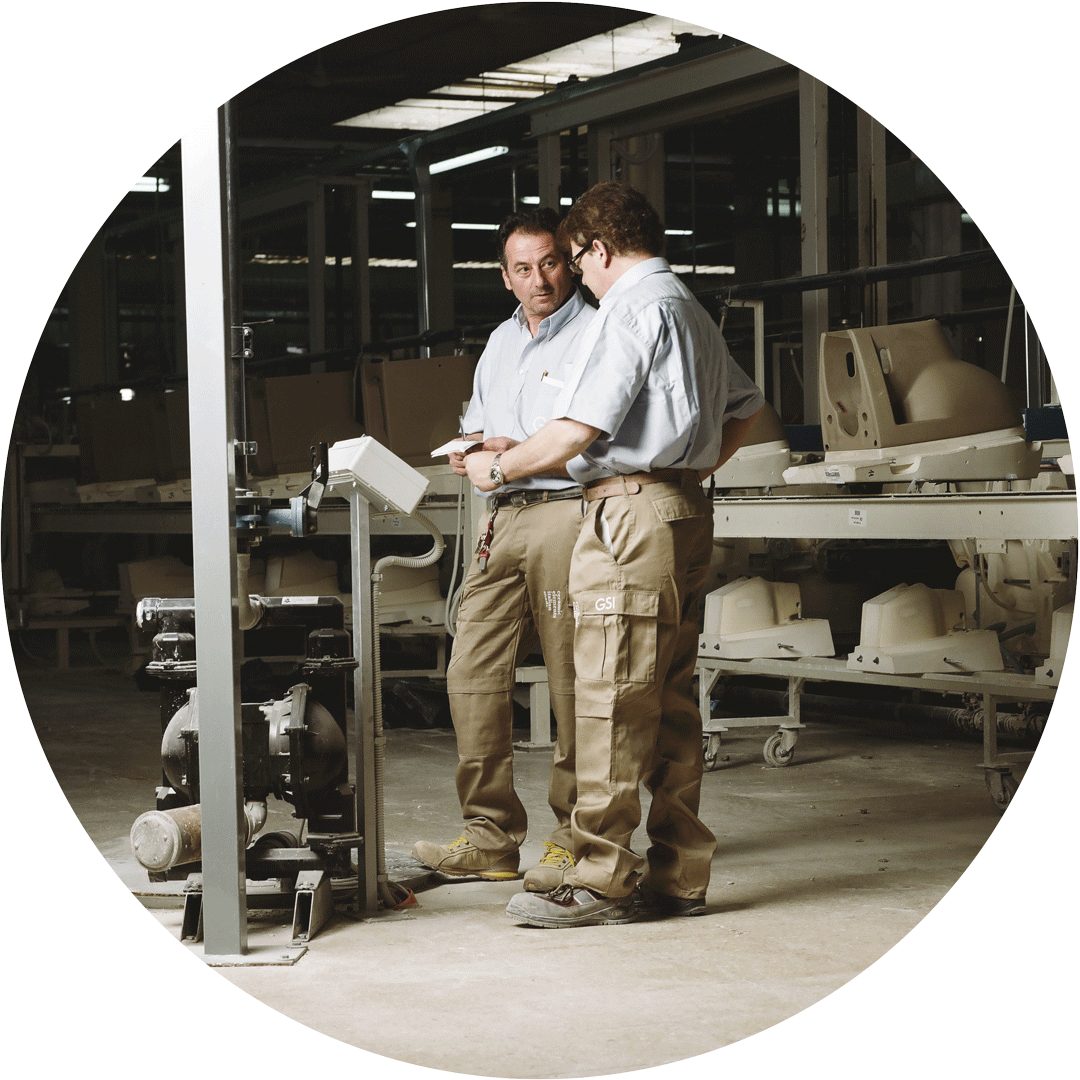
5
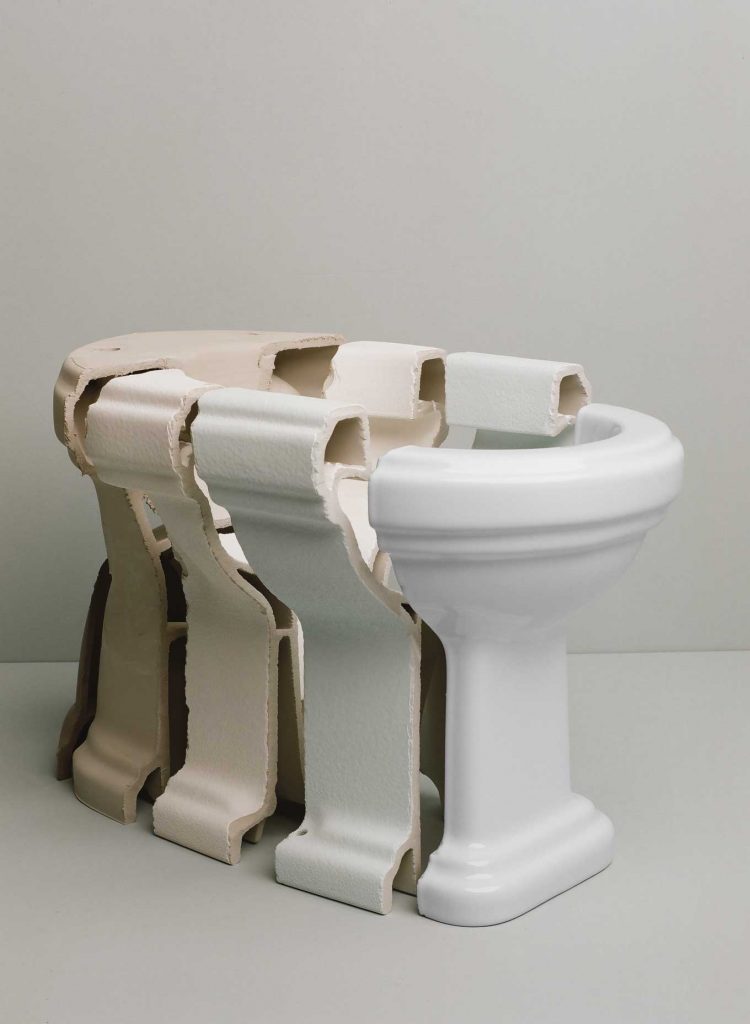
Firing in the tunnel kiln, testing and packaging: GSI pieces are ready to go out to our customers.
Operators place the cooled pieces on a pallet, but not all the pieces make it to the packing stage.
The objects are first carefully examined in the testing phase and only after they get past this strict quality control, are they sent for packing in cardboard boxes and protective layers. Now they are ready to be dispatched all over the world.
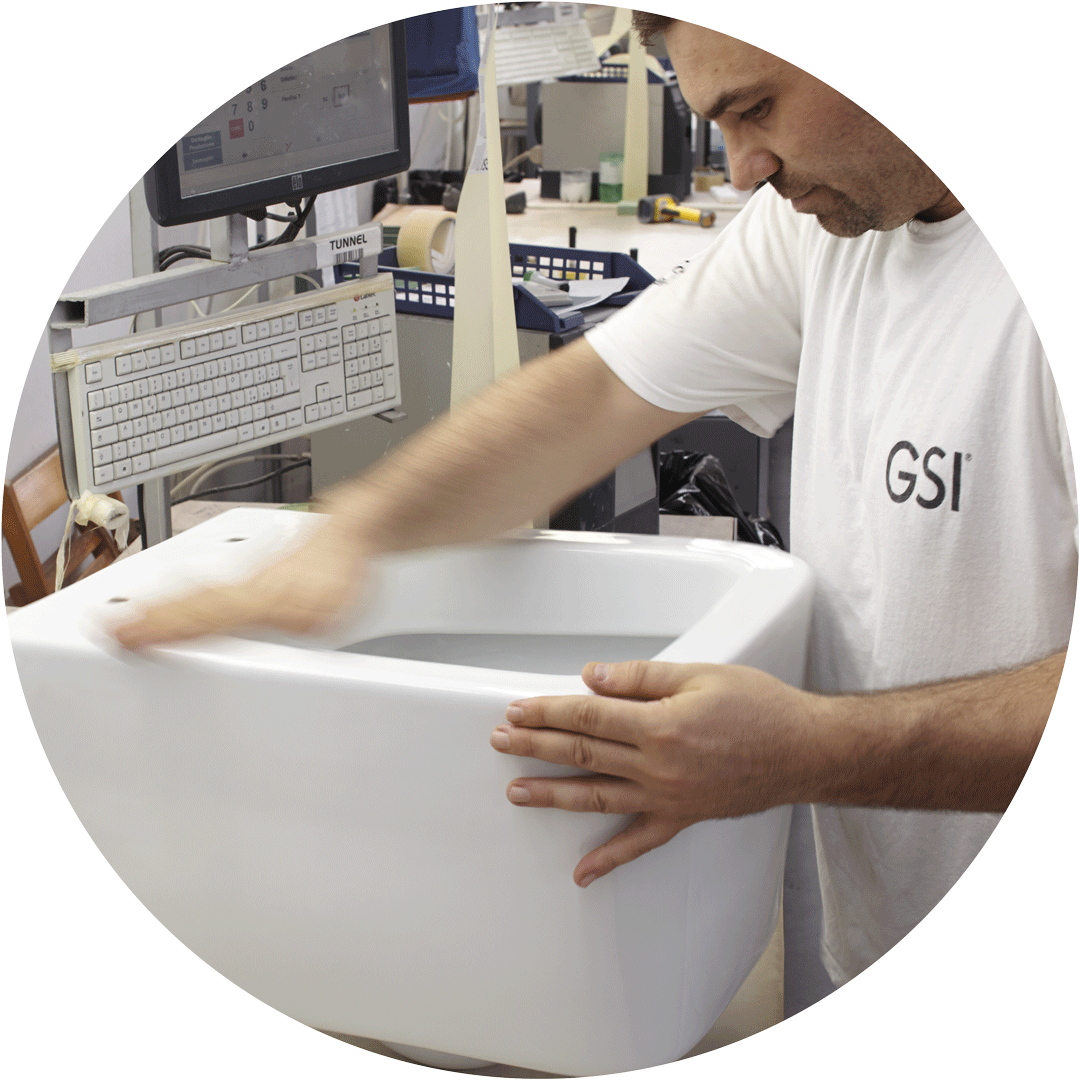
Technology
It’s not a paradox: a tradition survives over time only if it is constantly able to renew itself. Even if this means revamping the entire production cycle and adopting technologies that will noticeably improve the quality of our products. This is why GSI has decided to make the best use of our staff, entrusting
the most advanced equipment available in the ceramics sector to their knowledge and skills. To continue to move forward but with tradition behind us while creating the best possible product. That is GSI’s mission. At GSI we are aware that we have come a long way and that we owe a lot to our unique and precious heritage; but we also want to add a new chapter to that long story and the title of that chapter is: “The Future”.

GSI possesses the most advanced production technology currently available in the field of ceramics.
After the glazing process, the pieces are put on trolleys and sent for firing. The order in which the mobile trolleys are filled necessarily follows the sequence realized during the glazing phase. This order will later be changed for access to the kiln.
One strength of GSI’s production is most certainly its tunnel kiln. Arranged on mechanically running trolleys the sanitary pieces are placed in such a way as to best exploit the available space. The length of the tunnel and its power are indicative of the quality of GSI products because “a product that comes out of the kiln is a mirror of the company”.

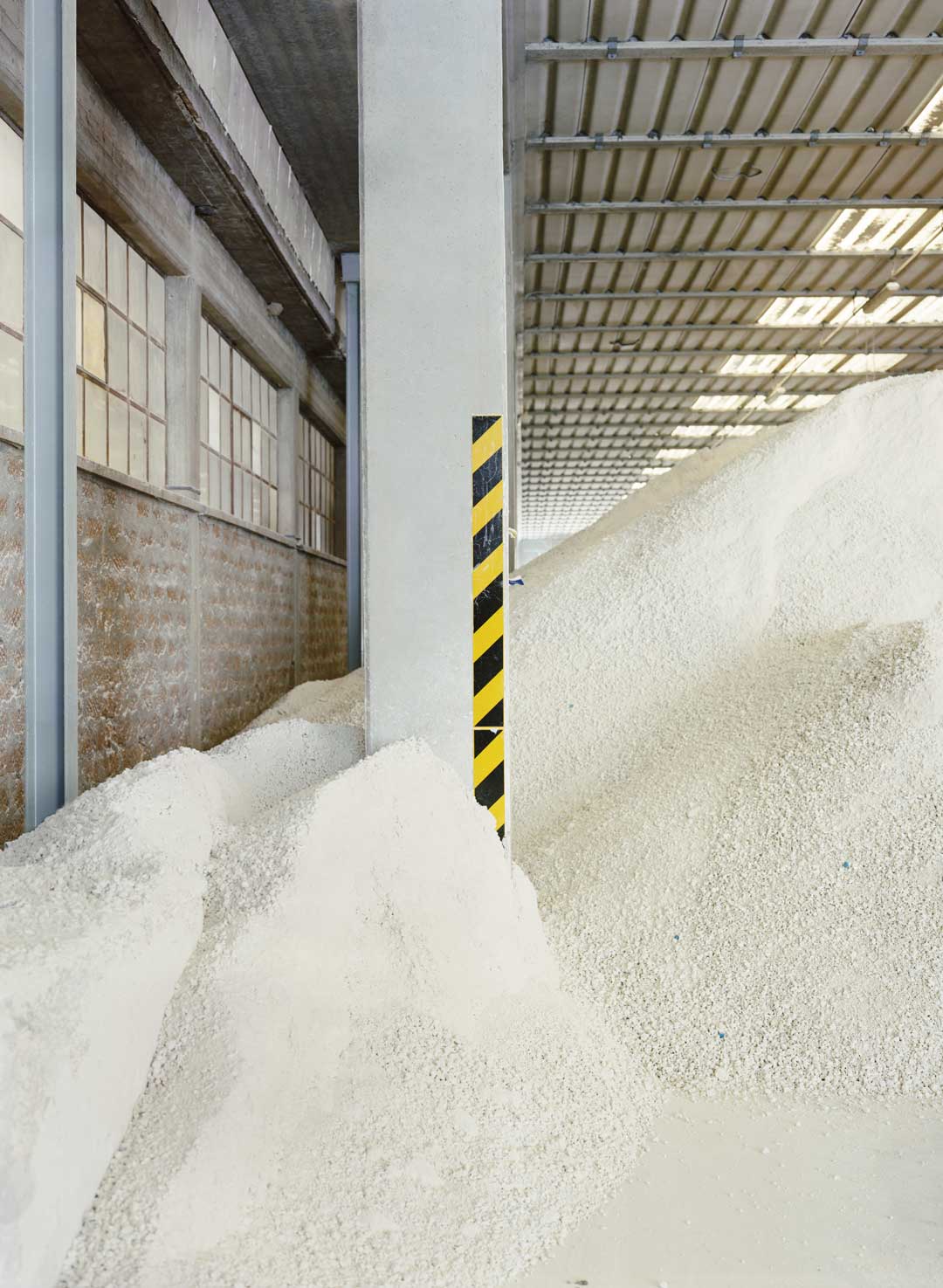

The percentage of GSI products that do not get through the inspection phase is actually quite small; this is the result of intense efforts to innovate every phase of the production process. But even discarded pieces reenter a virtuous cycle of recovery: some are broken up to be reused as fire clay, others are glazed to meet the needs of environmental sustainability.


